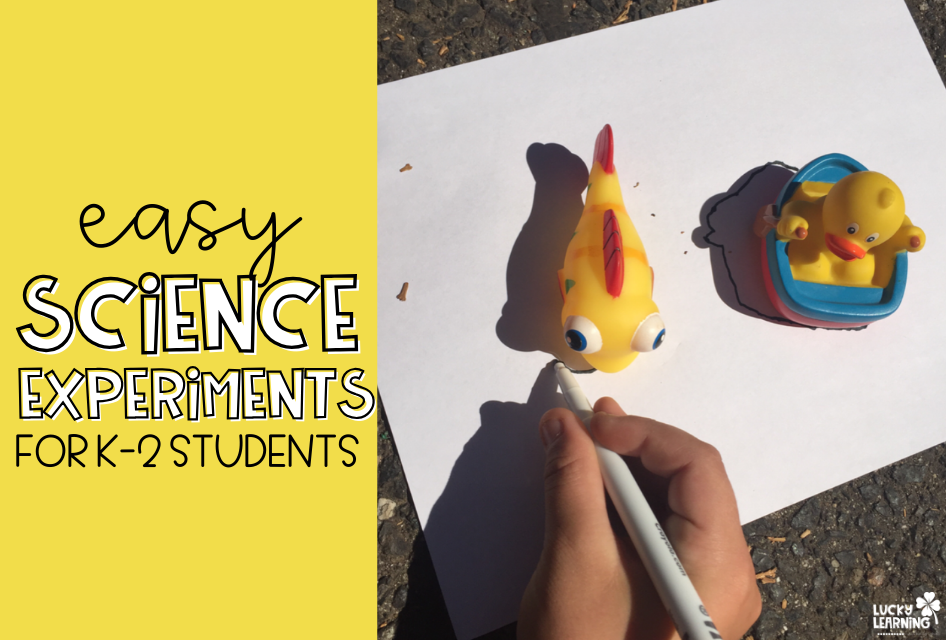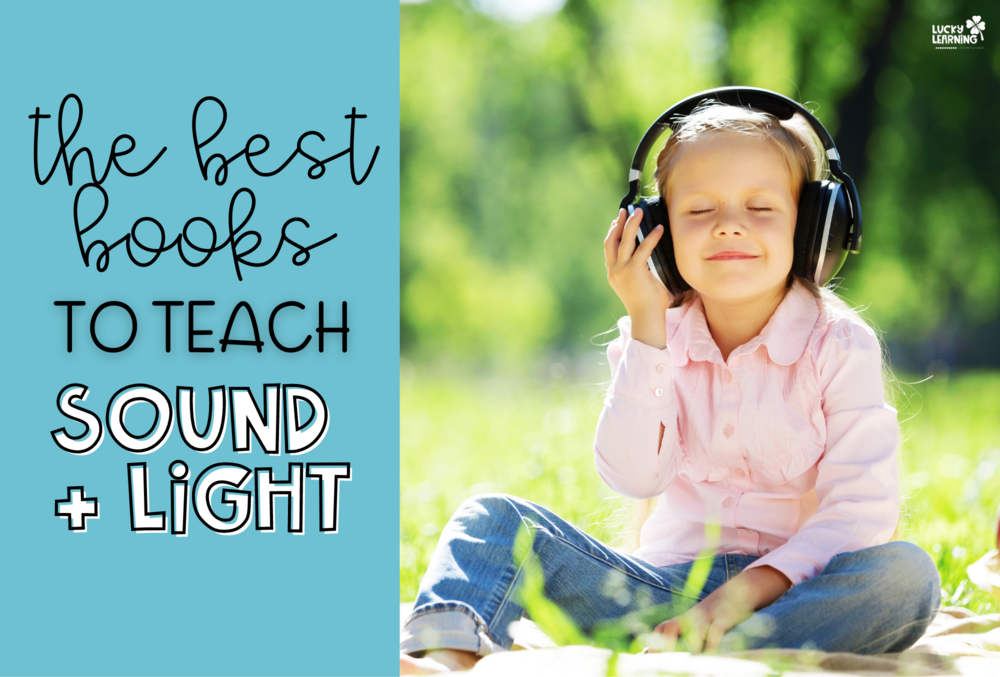It wasn’t until I became an adult {and a really mature adult at that!} that I finally began to understand the “Save the Bees” campaign!
As a kid, I just thought bees were annoying – something you avoided getting stung by or sharing your popsicle with!
But, as I’ve gotten older {and a bigger Earth nerd!} I’ve learned all about their importance. Did you know that bees pollinate one-third of the food we eat?! Bees have the big task of pollinating most of the fruits, vegetables, seeds, and nuts that make up our diets. Crazy, right?
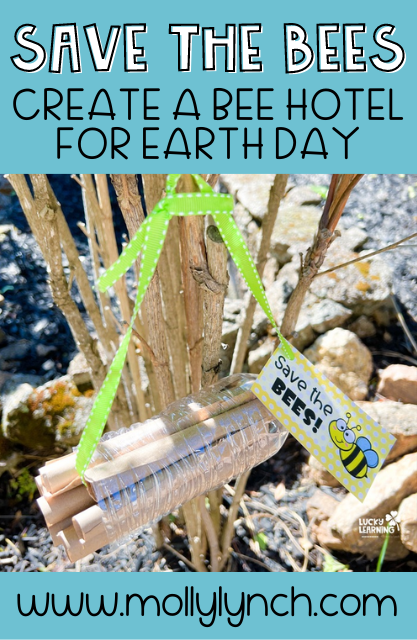
So it’s super important we start discussing the importance of bees when our students are very young! We need their help to spread the message of bee’s importance!
This post contains affiliate links. By purchasing an item on these sites using these links, I will receive a small commission on your purchase without additional cost to you. For more information about my Disclosure Policy, please visit this link.
Books About Bees
To kick off your lesson, read a book about bees. I love If Bees Disappeared. This story imagines the consequences of a world without bees. Your students will be enthralled {and maybe worried!} at what could happen!
Another great book {which is free on Kindle Unlimited!} is Save the Bees. In this story, three friends work together to help a bee’s pollination job easier. The focus in this book is on pollination and its importance in our world.
Give Bees a Chance is a great visual book for students to see all bees can do! This might be a tricky read-aloud book, but it’s perfect to add to your classroom library.
What on Earth? Bees is another great title to add to your classroom library. It’s a wonderful non-fiction title that gives LOTS of information about bees and their importance in the world.
What Can Students Do to Help the Bees?
After reading the books with your students, discuss ways to help the bees. Guide your students to understand just how important bees are! It’s important to highlight in this conversation that there are many types of bees.
While lots of bees do live in hives, some bees are known as solitary bees. Solitary bees live on their own, instead of in a hive. They do not serve a queen bee and don’t make honey! However, these solitary bees are just as important to the Earth as worker bees.
Solitary bees need a safe place to lay their eggs, protected from the elements and other animals.
Make a Bee Hotel
We all know that it’s often better to give students a hands-on activity than to just talk or read about a problem. SO…after reading the book, give your students a chance to create a Bee Hotel!
For each student, you’ll want to gather an empty water bottle, recycled paper bags, tape, some string, and the label below {which you’ll be able to grab at the end of the post}
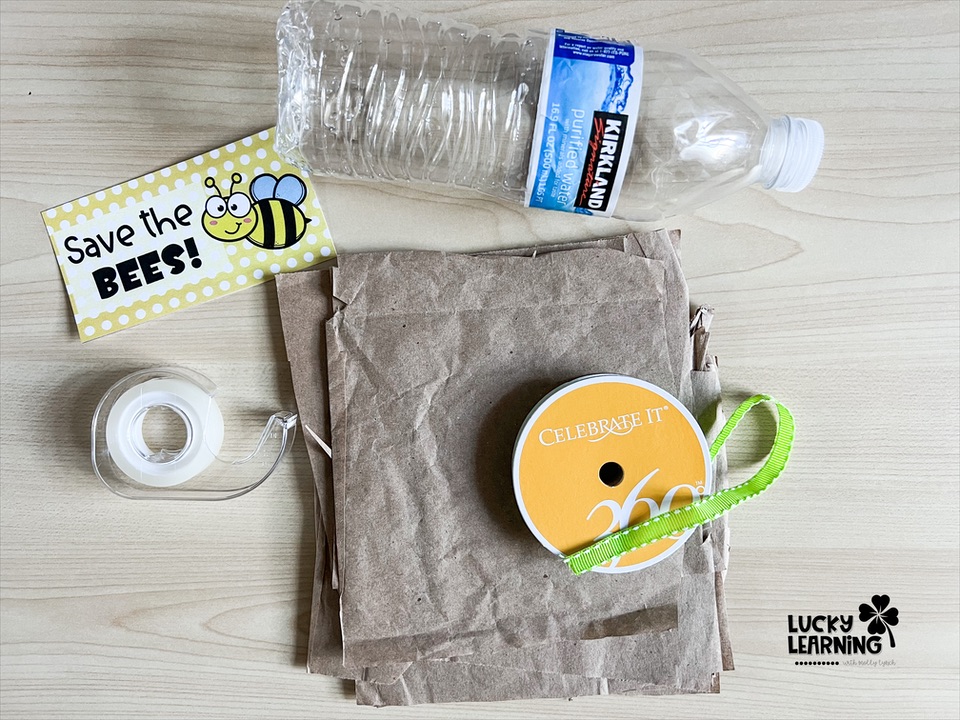
To get started, cut off the top of the water bottle and remove the cap.
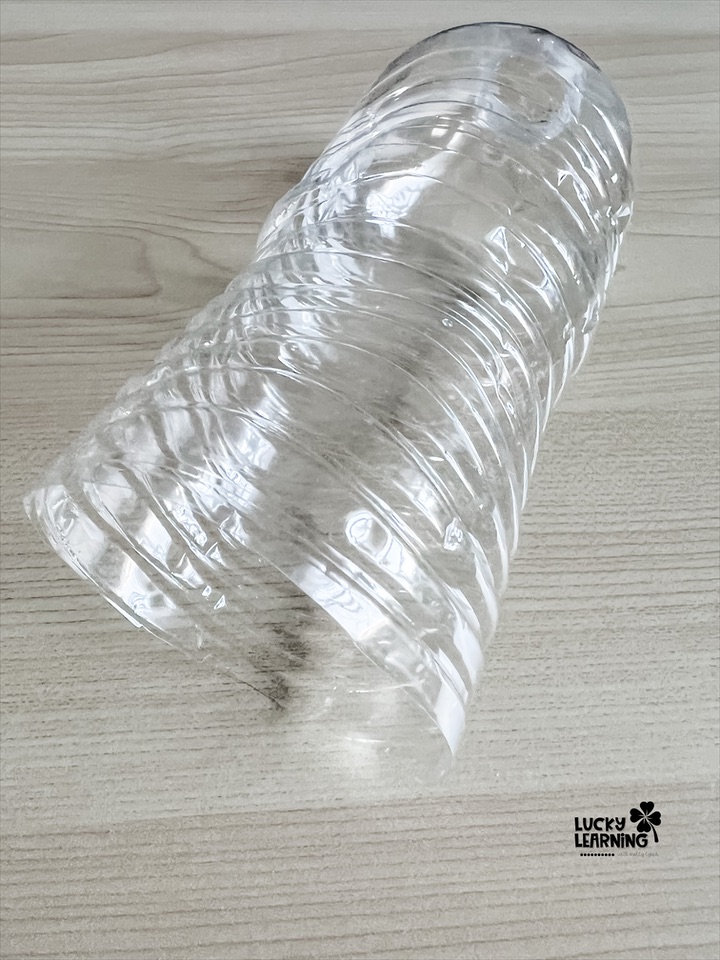
Next, roll the recycled papers into small tubes, securing them with tape. The tubes can be of various sizes so don’t stress too much getting them to look the same.
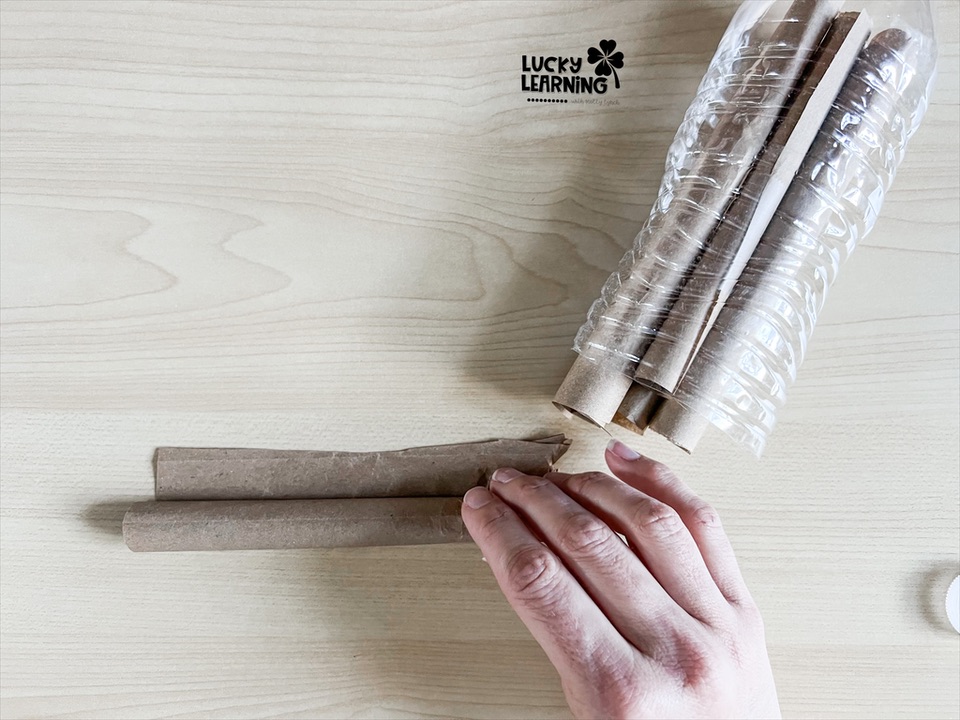
Stuff your rolled-up tubes into the water bottle.
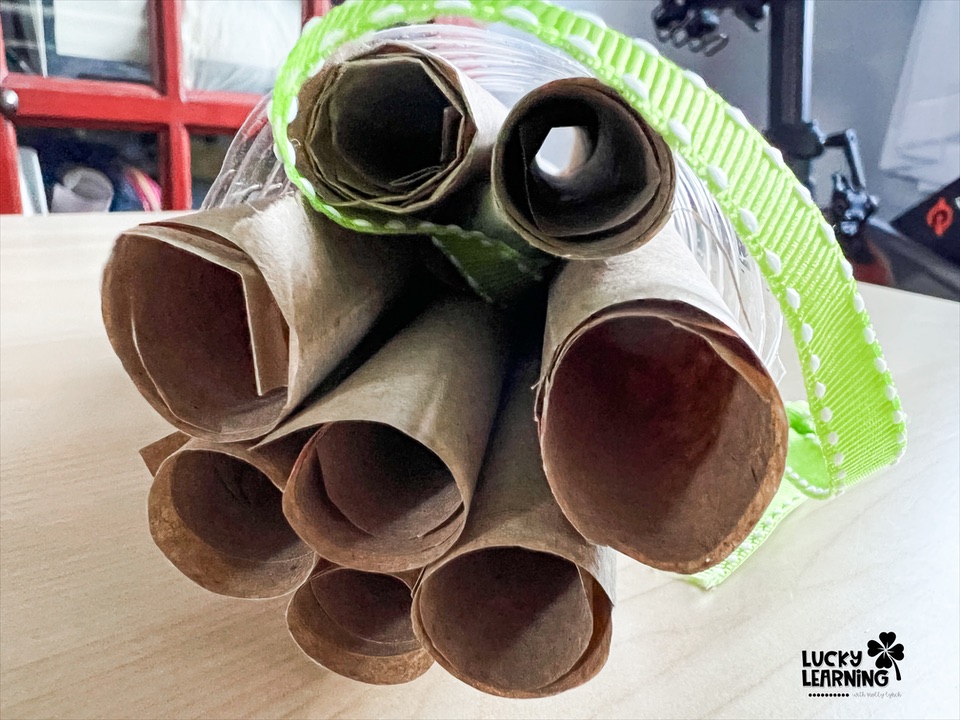
Hole punch the Bee Hotel sign and thread it through the string. Run the string from the bottom of the bottle through the top.
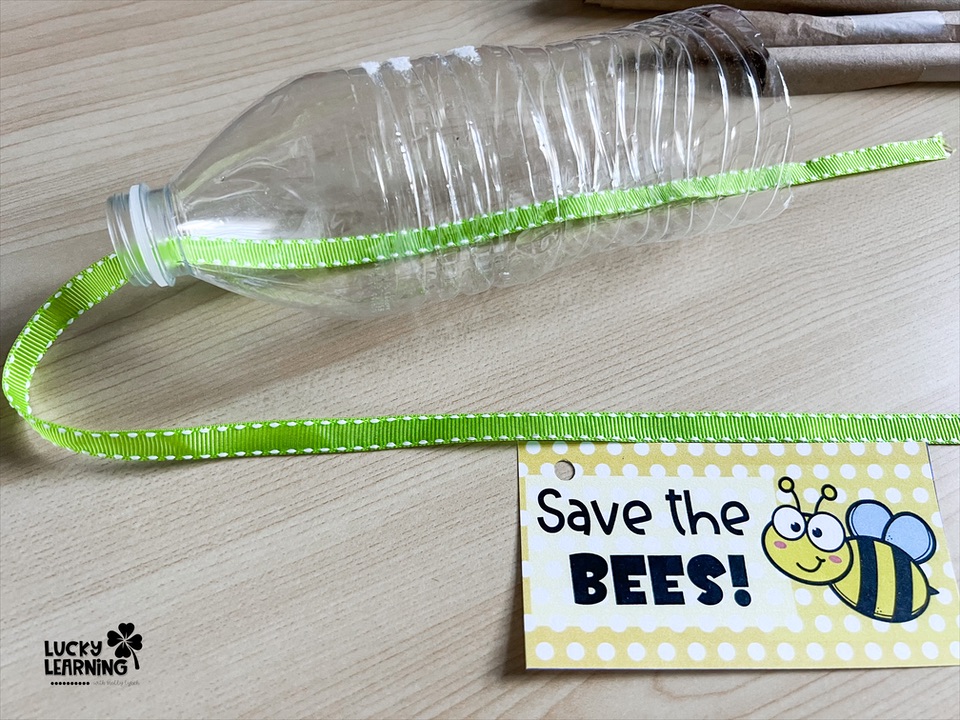
Once your Bee Hotel is complete, find a spot to hang it outside!
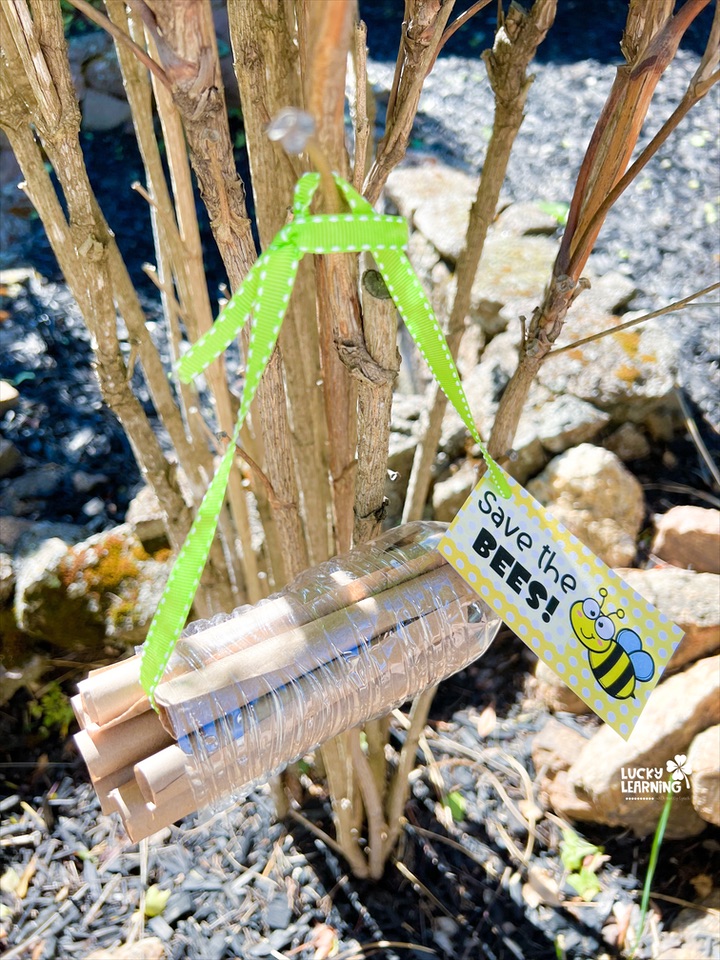
Want to make your own Bee Hotels this Earth Day? Fill in your info below and I’ll send you the directions and labels!






